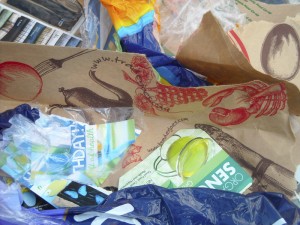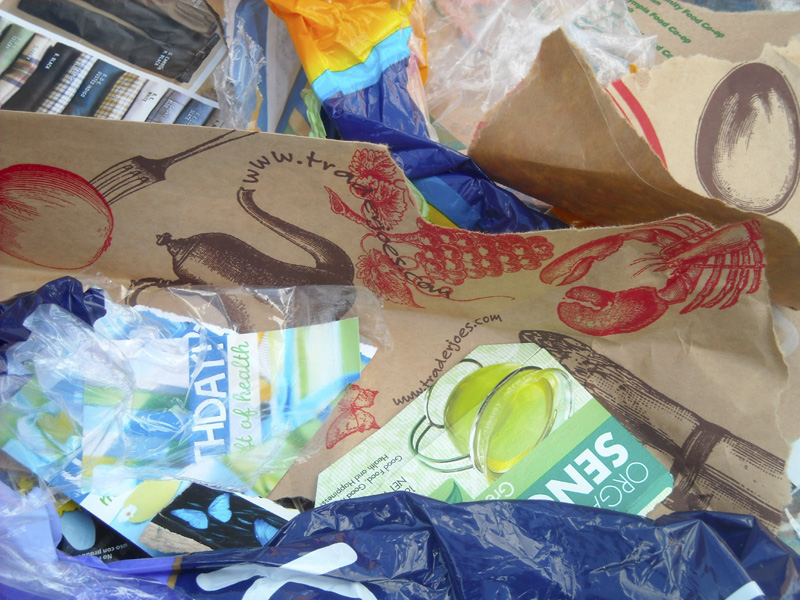
The California Senate has been considering a statewide ban on the use of plastic bags in grocery stores and pharmacies. The Jan. 2015 ban could prove to be beneficial since the effects that plastic products have on the environment have been said to be detrimental for years. Plastic is commonly associated with the unsafe chemical component bisphenol-A (BPA) and is non-biodegradable, which means that plastic will be around for years to come and can be swallowed by various wildlife and marine species.
Yes, plastic is harmful in some ways to the environment. However, many other products have damaging consequences as well. This leads to an unavoidable question: What will replace plastic bags as a convenient storage compartment for groceries and miscellaneous purchases?
If Democratic state Senator Alex Padilla manages to pass the bill, I cannot say that I will have any major complaints. The only concern is whether or not the people of California will want to transition away from the long-dependable plastic bag.
Many places in California have already instituted policies banning plastic bags, including Los Angeles, San Francisco and Marin Counties. Has the ban worked for them?
San Francisco banned plastic bags five years ago, and they did see a significant decline in bag use with an increase in reusable bags. However, there was also a spike in paper bag consumption, and although many believe paper bags to be an environmentally safer option, they may actually be more dangerous.
Paper is a heavy product and, for one, requires the eradication of a large amount of trees for its manufacturing. Paper is also not as durable—ever suffer through fumbling around with a wet paper bag full of groceries? Since a lot more resources are used to create paper bags, there is also more air and water pollution as a result. For San Francisco, the elimination of plastic bags and increase in paper bag use has actually resulted in an increase in plastic bag litter. So, if California does decide to pass Padilla’s bill, I hope its residents are prepared for the possible negative outcomes.
The solution here is to also make sure that paper bags are included in the ban. Otherwise, society will just regress back to using a less environmentally-respecting good. Just know that paper products are the single largest contributor to landfills. The increase in their manufacturing will also result in higher energy costs because paper bags weigh much more, meaning it takes more fuel to transport.
Both single-use plastic and paper bags are foreseeable downsides for a state that wants so dearly to be more environmentally-friendly. Of course, there are always reusable grocery bags. To stray away from plastic, grocers and activists once tried using reusable cotton bags. The problem is that the production of cotton bags is even more environmentally demanding than the manufacture of single-use plastic bags. At this point, I would rather be a part of the condemned plastic bag group.
Actually, plastic does not sound all that bad if it can be managed in a more eco-friendly way. The 2011 ban in Los Angeles does allow for reusable bags if they are 2.25 mil or thicker, when they can be reused 125 times and hold a certain volume of goods. Reusable plastic bags are not a terrible option because they are still better than their paper counterparts and can be utilized a multitude of times.
Plastic bags may be deemed evil as of now, but the pros and cons definitely need to be weighed accordingly. Plastic is a product that is harmful for the environment, but it is a better option than paper and cotton. It is better to side with the lesser of the three evils rather than to take a step in the wrong direction. Mark Daniels, chairman of the American Progressive Bag Alliance has stated that paper and cotton alternatives “require significantly more water and energy to produce,” but also his believes the ban could “threaten California manufacturing jobs.”
Daniels makes some good points here. Plastics are a big industry and cutting down on the production would lead to a shift in the market. The only viable option that seems to be currently favorable is using heavier-duty plastic reusable bags. No paper and no cotton would keep environmental costs low, and by phasing out the manufacture of plastic bags, Californians would start seeing the environmental benefits without forcing a sudden and unexpected change.
The ideal situation, for now, is to embrace the reuseable plastic bag option even though it may still have consequences attached to it. Hopefully, a greener product will be introduced that will cut back on plastic goods as we know them and lead to a future where the environment is thriving. In this day and age, all one can really do is play their part and make sure that they abide by the suggestions and take use of the reusable option without being wasteful. It is time for change, and one step away from harmful paper and plastic products could take us in the right direction.








